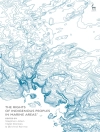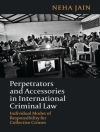This book sheds light on the fact that the proclamation of an emergency can be a legitimate constitutional method to take prompt preventative measures in protecting the interests of the society in times of grave crises. However, the exercise of emergency powers should not undermine a nation’s commitment to democratic values, such as maintaining the rule of law and upholding fundamental human rights. The COVID-19 pandemic has posed grave threats to the lives and health of individuals. However, since the constitutions of South Asian nations do not permit the proclamation of an emergency on health grounds, executives of these nations were constrained to rely, among other things, on ordinary legislation to tide over the threats posed by the pandemic. Although these statutes entrust the executive with extensive emergency powers, they do not simultaneously stipulate any safeguards subjecting the exercise of such powers to a reliable system of checks and balances.
Accordingly, this book critically examines the exercise of emergency powers in the South Asian nations to tide over threats posed by the COVID-19 pandemic, which had a profoundly adverse impact on the human rights of individuals. Such exercise of powers was consistent with the general tendency demonstrated by succeeding generations of the executives in these nations to use emergency situations as the convenient means for imposing long-lasting limitations on the rights of individuals. Consequently, this book identifies the flaws, deficiencies, and lacunae of the legal framework in these nations, which permit the executive to assume unfettered power in the exercise of emergency measures at the expense of the liberty of individuals. Consequently, based on these findings, recommendations will be put forward for initiating reforms in these nations aimed at ensuring the maintenance of a delicate balance between the necessity to respond tograve threats and to simultaneously prevent undue intrusion on the fundamental human rights of individuals.
قائمة المحتويات
1. Human Rights in South Asia during the COVID-19 Pandemic: An Overview.- Part I The COVID-19 Emergency and the Executive Response: Reinforcing the Necessity of Institutional Reforms.- 2. The Executive Response to the COVID-19 Emergency and the Issue of Protecting Rights: The Same Old South Asian Story.- 3. Oversight and Monitoring of Executive Actions in India during the Pandemic: A Case of Absentee Parliament.- 4. Evaluation of the Functioning of the National Human Rights Commissions of India and of Other South Asian Nations during the COVID-19 Pandemic.- 5. Looking beyond Constitutional Institutions during an Emergency: Exploring the Role of the Civil Society in Protecting Rights.- Part II The Adverse Impact of the Pandemic Response on Fundamental Rights.- 6. Criminalisation of Media Reporting on the Government Response to the COVID-19 Pandemic in India, Pakistan and Bangladesh: Freedom of Press in Peril.- 7. Protecting Free Speech and Curbing the Spread of Disinformation in the Age of COVID-19: Did the South Asian Nations Get the Balance Right?.- 8. Right to Health during the Pandemic: A South Asian Perspective.- Part III The Adverse Impact of the Pandemic Response on Socio-Economic Rights.- 9. COVID-19 and the Indian Migrant Workers: Citizens of State or Citizens of Nation.- 10. The Right to Health: Cinderella among the Fundamental Rights and Lessons from COVID-19.
عن المؤلف
Dr. M. Ehteshamul Bari is a Senior Lecturer in Law and the Deputy Head (Research) of the Thomas More Law School at the Australian Catholic University in Melbourne, Australia. Dr Bari is an internationally recognized scholar in the fields of constitutional law, human rights, Asian legal systems and public international law. He has so far published 5 books – 4 monographs and 1 edited book – with reputed academic publishers, namely, Routledge and Springer, 25 book chapters and research articles including publications in the Oxford University Commonwealth Law Journal, Wisconsin International Law Journal, George Washington International Law Review, Emory International Law Review, Cardozo International and Comparative Law Review, Michigan State International Law Review, and Transnational Law and Contemporary Problems. Dr Bari has received prestigious awards in recognition of his scholarship, including the Executive Dean’s Higher Degree Research Award for Best Publication at Macquarie University, Sydney.
Dr. Uday Shankar is an Associate Professor of Law at the Indian Institute of Technology (IIT), Kharagpur, India. Previously, Dr Shankar served as the Registrar of the Hidayatullah National University, India on lien from IIT. His primary research interests lie in the areas of Public Law, Constitutional Law, and Human Rights Law. Dr Shankar has published extensively in these areas in reputed refereed journals and edited books.












